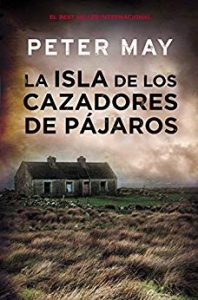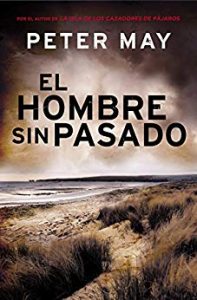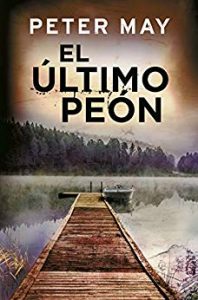The Scottish Writer's Case Peter May it is the paradigm of the eclectic between the police and the new noir currents. A kind of reconciliation of origins with its evolution. As soon as May we find echoes of Chandler or Hammett as we end up entering the rooms of current forensic medicine to discover those details that science offers for the discernment of the most vicious of crimes.
And without a doubt the mixture, as in so many other cases, is enjoyed. Even more so if we manage to detach ourselves from more purist or more avant-garde predilections. And the enjoyment is even greater when we delve into very dynamic scenarios, such as continuations of the scripts in which May is also a renowned screenwriter.
But the good of May does not stop in that narrative will of the miscellany in the plot. Also its scenography is enriched with proposals in environments as disparate as China or France, adjusting at all times to that necessary setting on which May exhibits her profuse documentation obtained in incessant trips and contacts with the criminalistic environments of one or other places.
While his extensive work, already begun in the seventies of the last century, just arrived in Spain through his Lewis trilogy, we can already point to that selection of recommendable that will continue to increase in view of the good reception of this author. A safe bet that will surely end up consolidating it as another new benchmark for a black genre that has been a global bestseller for many years.
Top 3 recommended books by Peter May
The island of bird hunters
Novel with which the Lewis trilogy takes off, the great Scottish island on which the Callanish stones are erected and in which May builds a story with that paradoxical sensation of claustrophobia that islands offer when considering their limited space surrounded by water and separated from any form of escape ...
Finlay Macleod comes from there, but his detective career led him to new, more urban places, where crimes point more to the human than to any other sinister or even mystical perception, as it seems to happen now in Lewis and where Finlay now returns. to try to shed light on the case and, unknowingly, on his past.
At first Finlay returns to study a murder, but fate ends up offering him a return to his youthful days in which he faced the rock of Sula Sgeir and a lethal tradition of the youth of the place.
Because he went through that rite and again young people of the place face that struggle against the elements, towards a final survival that can lead them to face the worst of their being ...
The methodology of Finlay the researcher and his atavistic fears, the cold wind currents, the elements capable of dragging the souls of young people with them. A haunting crime novel.
The man without a past
Above all on the Isle of Lewis there is wind, a constant and intense whistle that sings of loneliness and even madness. To live in that place is to assume the punishment of the elements.
Lewis' nature is exuberant in its most basic layer, covering with inextinguishable greenery and wetlands without groves that take root or that can hinder the punishment of the wind.
Sinister beauty in which May has developed a trilogy that may seem limited by the space of the island but that finally expands with a great sense of humanity ruled by fear.
A perfect setting to address a plot like that of this second novel that evokes the tribal, the return of ancient practices of communication with the gods, blood through.
When the body of a young man appears in the wetlands and his DNA links him to Tormod Macdonald, an old man from the place, the matter takes on a trace of macabre humor.
Tormod himself does not recognize that relative. Macleod will have to put everything on his part, his wisdom as a researcher and his knowledge of the terrain in which he moves to try to unravel the mystery of the body that appeared centuries ago or from the most premeditated concealment.
The last pawn
Nature is capricious, sometimes its cravings are rather messages that range from current warnings of climate change, to unsuspected functionalities that seem more typical of cellular functionalities of a living being.
On the Isle of Lewis a lake performs its periodic drainage work and offers its bottom empty. But this time that background shows the remains of an aircraft accident.
The disappearance of Roddy Mackenzie at the controls of his plane was considered to have occurred beyond the island, but the strangeness of his whereabouts at the bottom of the lake suggests almost twenty years later that nothing happened as it was considered.
The good old Macleod is directly punctuated by this case taken back to his young days. So you have more knowledge of the facts than ever to find the truth.
Only, on many occasions, the truth ends up being linked with unimagined guilt and with rewrites of destiny and history that must be considered.
A narrative that places us in that strange stage of the most intense contradictions about good, evil and the need for survival of everything built to escape the fateful destiny ...



